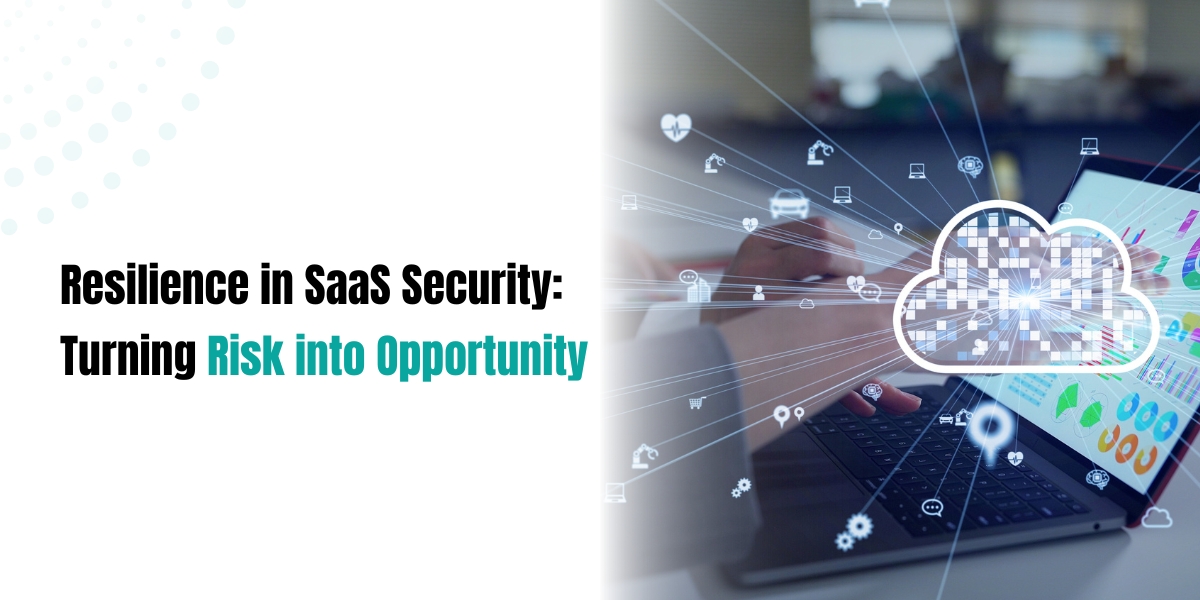
Resilience in SaaS Security: Turning Risk into Opportunity
Software as a Service (SaaS) has become an essential part of current corporate operations in the digital age. It provides unmatched efficiency, scalability, and ease, enabling businesses to cut expenses and simplify procedures. SaaS adoption has increased, but so have the security threats that come with it.
Cyber risks, data breaches, and system disruptions present severe obstacles for SaaS systems. To effectively handle these obstacles, SaaS security resilience has become a top focus. However, resilience is a strategic advantage that may convert danger into opportunity rather than merely a protective tactic.
The Importance of Resilience in SaaS Security
In SaaS security, resilience refers to the ability of a SaaS platform to tolerate, react to, and recover from security threats and disruptions. Resilience is more comprehensive than typical security methods, which address prevention. It entails foreseeing possible dangers and reducing their impact.
Additionally, it ensures that, even in the event of an assault, company operations can continue or swiftly resume. The sophistication of cyber threats has rendered traditional security measures inadequate. Hackers are always devising new ways to take advantage of weaknesses.
So, even the strongest security measures can be hacked. Resilience comes into play here; it's about being ready for anything that might go wrong and limiting the harm when it does. Resilience is a commercial necessity in a SaaS environment, not simply a technological necessity.
Key Components of SaaS Security Resilience
Building resilience in SaaS security requires a comprehensive approach that integrates several key components:Proactive Risk Assessment
Knowing the risks that your SaaS platform is exposed to is the first step towards constructing resilience. Anticipating possible risks and taking preventative action in advance to stop security breaches from getting worse is known as proactive risk management. Organizations may protect their sensitive digital data from cyber threats by embracing a forward-thinking mentality.
Robust Incident Response Plans
A strong incident response strategy is necessary to reduce the harm cyberattacks can cause. Organizations can improve their resilience against cyber threats by conducting rigorous preparation, promptly identifying and containing incidents, eliminating threats, recovering systems, and learning from each incident.
Continuous Monitoring and Risk Detection
Continuous monitoring helps businesses proactively manage their security risks and adhere to legal obligations by enabling them to recognize and address security threats in real-time. Minimizing the impact of an attack and averting additional harm require early discovery.
Data Encryption and Backup
Data protection is the basis of SaaS security resilience. Data encryption ensures that sensitive information cannot be readily exploited, even if unauthorized parties obtain access to it. In addition to encrypting data, it is essential to regularly backup it.
Regular Security Audits and Compliance
Frequent security audits and assessments enable companies to find weaknesses in their IT systems before hackers can exploit them. These assessments help organizations acquire a comprehensive comprehension of plausible security hazards and create efficacious tactics to alleviate them.
Turning Risk into Opportunity
Unquestionably, there are hazards related to SaaS security, but there is also room for expansion and innovation. Organizations can leverage their resilience to turn security challenges into competitive benefits.
- Increased Client Confidence
Constant Enhancement
Being resilient is a continuous process that requires constant effort. Cyber threat issues force security procedures to be continuously improved. Resilient organizations are better able to remain ahead of the curve and adjust to changing threats.
Market Differentiation
Resilience can be an important differentiation in a crowded SaaS market. SaaS companies that prioritize security resilience might establish themselves as leaders in their respective fields, which can help them command higher prices for their services and improve their reputation.
Gaining client's trust requires SaaS security resiliency. Consumers are more inclined to select a service that can ensure their data is secure and readily available. A robust software-as-a-service platform not only draws in new clients but also fortifies ties with current ones.
Resilience in SaaS security is about more than just surviving in a threat-laden environment—it’s about thriving. By implementing a comprehensive Resiliency Program, organizations can turn security risks into opportunities for growth, innovation, and market leadership. Embracing resilience through a well-structured program is not just a defensive strategy.
It’s a forward-looking approach that positions organizations to succeed in the ever-evolving digital landscape.